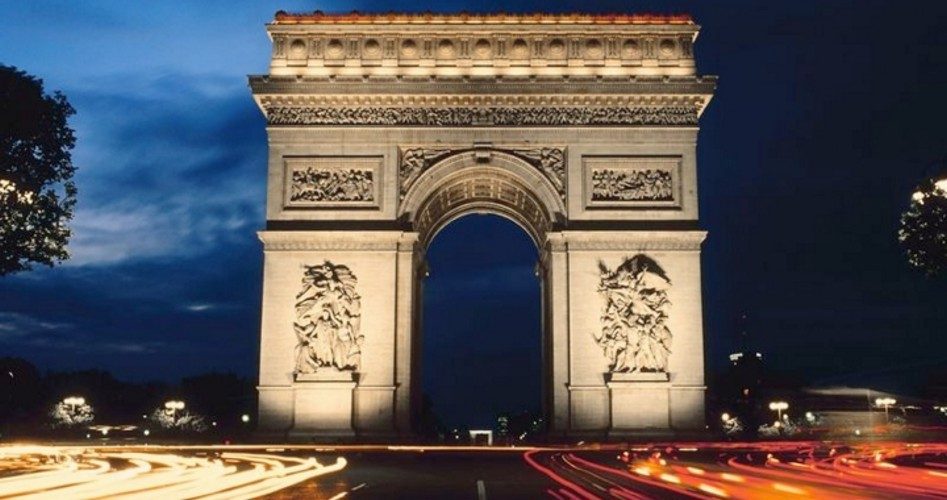
Francois Hollande has been deemed only the second candidate of the “Left” elected as a President of the Fifth Republic of France. Francois Mitterrand was the other leftist President. As a follow up to his presidential victory a few weeks ago, the French people also granted the Socialist bloc a majority in the National Assembly — between 308 and 320 seats out of a total of 577 members. These elections have two “rounds,” and the top two candidates, if none receives a majority, compete against each other in the second round. This means that Hollande can govern without relying upon other blocs, such as the Green or the “far Left.”
Political definitions in French politics, however, have very little real meaning. Consider the composition of the Chamber of Deputies (the lower chamber of the French national legislature in the Third Republic — similar to the present National Assembly in the Fifth Republic) right before the Second World War began. There were 617 delegates, compared to 577 in the National Assembly today. This was the breakdown by political party: Socialist (155 members), Radical Socialist and Radical Republican (113 members), Communists (72 members), Republican Federation (54 members), Alliance of Left Republicans and Independent Republicans (42 members), Independent Republicans of Social Action (28 members), Democratic Left and Independent Radicals (26 members), Socialist and Republican Union (25 members), Independent Left (25 members), Independent Popular Action (15 members), Independent Republicans (12 members), Popular Democrats (13 members), Independent Agrarians (13 members), French Social Party (8 members), and Independents of the Republican and National Union (4 members.)
Out of 617 members, 458 belonged to some party calling itself “Socialist” or “Left” or “Communist,” or 74 percent of the members of the chamber. There were no “Right” or “Capitalist” or “Conservative” members, and even the tiny “Republican Center” had vanished. French politics did produce new groups during the period between the beginning of the Nazi rise to power in 1930 and the year of its bloodless conquests in 1938. But the groups didn’t repudiate national socialism. A few snippets under the category of “New groups born of the 1936 election” tell it all: There came the “Formerly Radical Left, to which [had] … been added certain reelected Left independents and certain elements of the Left who seceded from the Democratic Alliance,” the “Party of Proletarian Unity,” the “Dissidents from the Radical-Socialist Party, … composed an extreme Left wing,” a group “comprised of dissident Communists and extremist Socialists,” and another “composed of extreme Left Radicals.” Five new groups, each apparently lurching out farther to the Left!
So what is the partisan composition of the 2012 National Assembly? Socialist Party (280 members), Union for Popular Majority (194 members), Miscellaneous Left (22 members), Europe Ecology (17 members), Miscellaneous Right (14 members), Radical Party of the Left (13 members), New Center (12 members), Left Front (10 members), Radical Party (6 members), National Front (2 members), Center for France (2 members) and a sprinkling of others. No “Freedom,” no “Christian,” or “Capitalist” at all. The so-called “Right” in France, as in nearly all of Europe, does not really exist. Incarnations of collectivist statism, whether the Socialist Party, the Europe Ecology Party, or the Radical Party of the Left, stand for continuing along the same path that has gotten the euro zone into its current condition.
That explains much of what is happening in Europe today, but there is another story coming out of these elections that perhaps explains just as much the problems of Europe. Five years ago when the Socialist Party fielded a candidate against Sarkozy, that candidate was Segolene Royal, who had lived without being married to new French President Francois Hollande. She and the new president had four children together, but she left him after losing the 2007 election. Hollande has a new live-in girlfriend, and Hollande’s four children by Royal have now severed contacted with their father’s girlfriend because she is perceived as having manipulated their mother’s loss of her National Assembly race.
In America it would be unthinkable to have a major party candidate for the White House living in sin with a woman, then dropping her and cavorting with a married woman, but the last two presidential nominees of the major socialist party in France have simply lived together without marriage and, beyond that, conceived and raised four children without their famous parents being married. Hollande began an affair with Treirweiler in 2005, while his live-in “partner” Segolene was running against Sarkozy and while Treirweiler was still married with children.
What does France have to look forward to? The new president and the new National Assembly are firmly committed to the tax-and-spend policies that have been the cause of the problems of Europe and the presidential household (Treirweiler is considered the “First Lady” of France) reveal a moral deconstruction that suggests the end of all semblance of Judeo-Christian religious values. It is hard to see what this new regime in France can do to halt the nation’s slow economic, political, and moral suicide.


